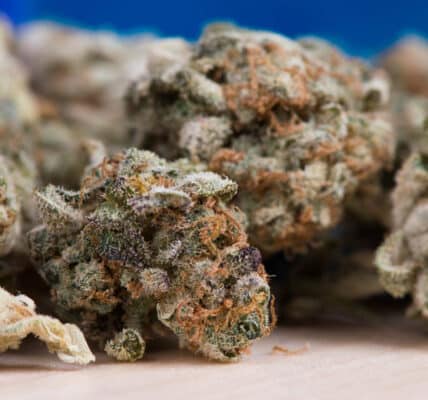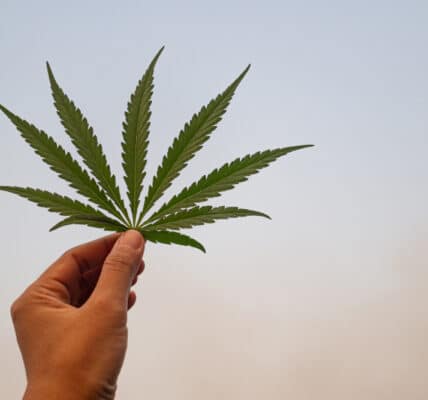Genome-Wide Association Study Tells Us Almost Nothing About Cannabis Addiction

The Washington Post made a big splash last week with an article on the genetics of cannabis addiction. The article was based on a genome-wide association study (GWAS), which compares the genomes of a population in search of genetic variations more common in lifelong cannabis users and frequent cannabis users.
The study, published in the journal Molecular Psychiatry, was conducted primarily by the University of California San Diego (UCSD) and involved a collaboration with DNA genetic testing company, 23andMe. The study looked at nearly 132,000 “lifetime” cannabis users and another 73,000 “frequent” cannabis users.
They found heritability in both lifetime users and frequent users. Specifically, 12.88% lifetime users had inherited two variations (CADM2 and GRM3) associated with cannabis use, and 6.63% of frequent users inherited a single variation (CADM2).
Compare these numbers with Cannabis and Public Health, a publication of the Centers for Disease Control. They estimate, as of last year, that 3 in 10 cannabis users will develop cannabis use disorder (CUD). If one-third of frequent marijuana users are developing CUD and less than 7% of them share a genetic variation, the genetic component does not strike me as significant. Let’s look at the math.
If you have 73,000 frequent users, and 30% of them develop CUD, that’s 22,000 people with CUD. If 6.63% of those people share a common genetic variation, that’s 1,500 people. Fifteen hundred people are exactly 2% of the original pool of 73,000 frequent users.
Another way of framing these results is that only 2% of cannabis addiction is associated with genetic variation and 98% is a result of something else, such as environmental factors or epigenetic factors.
Corresponding author on the study, Dr. Sandra Sanchez-Roige from the UCSD Institute for Genomic Medicine, told The Washington Post that “only a small percentage of people who try marijuana develop a cannabis use disorder.” If 30% of frequent users develop CUD, that’s not “a small percentage.” What is a small percentage is the amount attributable to genetic heritability. That seems negligible to me.
And I’m not the only one. The Washington Post interviewed Dr. Wayne Kepner, an addiction specialist at Stanford University who was not part of the UCSD study. He said “the risk of getting hooked may only be slightly higher,” for those with the genetic variation.
Here are some other factors that play a much larger role in developing cannabis addiction: stress, the context, the environment, the brain, the gut, polysubstance abuse, emotional abuse, physical abuse, and pain, to name a few.
An interesting GWAS study conducted by the Department of Psychiatry at the Yale School of Medicine, in collaboration with 23andMe, found an association between CUD and the same CADM2 variation found in the UCSD study. They also found that this variation is associated with “traits related to openness to experience and risk-taking, including substance use and sexual behaviors.”
Now we’re getting somewhere. Genetic variations that code for risk-taking also code for substance use, even though a miniscule number of people with these variations will develop CUD. Further, the Yale researchers found behaviors were bidirectional: substance use increasing risk-taking and risk-taking increasing substance use.
As if to drive home the point of the insignificance of their own reporting, The Washington Post ends by quoting the corresponding author on the Yale study, Dr. Joel Gelernter, on the genetic origins of CUD: “It’s not something that is yet even approaching clinical utility.”
Written by Steve O’Keefe. First published October 22, 2025.
Sources:
“Scientists identify key reason people may use or get addicted to cannabis,” The Washington Post, October 13, 2025.
“Genome-wide association studies of lifetime and frequency of cannabis use in 131,895 individuals,” Molecular Psychiatry, October 13, 2025.
“The genetics of cannabis lifetime use,” Neuropsychopharmacology, October 3, 2025.
“Understanding Your Risk for Cannabis Use Disorder,” Cannabis and Public Health, December 5, 2025.
Image Copyright: nuad338.


